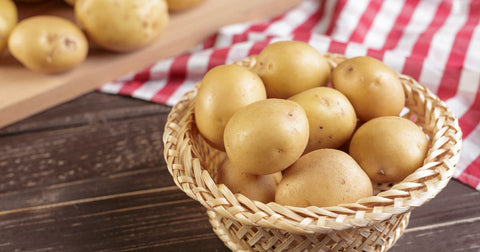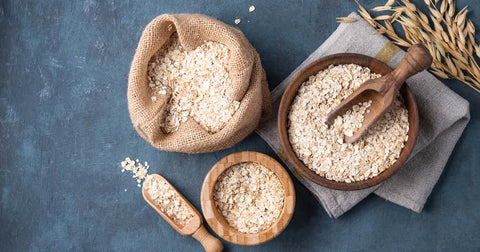Jello, that jiggly, colorful dessert, is a nostalgic favorite for many. But if you're following a gluten-free diet, you might be wondering, "Is gelatin gluten-free?" Can I indulge in this childhood classic without worry?

This article dives deep into the world of gelatin and gluten, exploring their relationship, the potential benefits of gelatin, and how to navigate food sensitivities.
Understanding Gelatin
Gelatin is a protein derived from collagen, found in the connective tissues of animals. It's commonly used as a gelling agent in various food products, including:
-
Jello desserts
-
Gummies
-
Marshmallows
-
Some sauces and gravies
-
Certain medications and supplements
Is Gelatin Gluten Free?
Yes, gelatin is naturally gluten-free. It's derived from animal collagen and does not contain any wheat, barley, or rye, the grains that contain gluten.
Does Jello Have Gluten?

Most Jello products are gluten-free. However, it's always crucial to check the ingredient list to be sure. Some Jello varieties might contain added ingredients, such as flavorings or thickeners, that could contain gluten.
Is Jello Pudding Gluten Free?
Similar to Jello desserts, most Jello pudding mixes are gluten-free. However, always double-check the ingredient list to be sure.
Potential Benefits of Gelatin
While gelatin is primarily known for its gelling properties, it also offers potential health benefits:
-
Joint Health: Gelatin may help reduce joint pain and improve mobility due to its collagen content.
-
Skin Health: Collagen is essential for skin elasticity and firmness.
-
Gut Health: Gelatin might help soothe the digestive tract and support gut health.
-
Hair and Nail Health: It may contribute to stronger hair and nails.
Food Intolerance and Gelatin
While gelatin is generally well-tolerated, some individuals might experience digestive issues after consuming it. This could be due to a sensitivity to gelatin or other ingredients in gelatin-containing products.
Food Sensitivity Test Kit: Identify Your Triggers
If you experience digestive discomfort after consuming gelatin or other foods, consider taking a food sensitivity test kit. This can help you identify specific foods that might be triggering your symptoms, allowing you to make informed dietary choices and improve your gut health.

Key Takeaways:
-
Gelatin is naturally gluten-free.
-
Most Jello products are also gluten-free, but always check the label to be sure.
-
Gelatin offers potential benefits for joint, skin, gut, and hair health.
-
If you experience digestive issues after consuming gelatin, consider a food sensitivity test to identify potential food intolerances.
Remember, this article is intended for informational purposes only and should not be considered a substitute for professional medical advice. If you have any concerns about your health or dietary choices, consult a qualified healthcare professional.
Frequently Asked Questions:
1. I have celiac disease. Can I eat Jello?
Most Jello products are gluten-free, but it's crucial to check the label for any potential gluten-containing ingredients. Look for the "gluten-free" label or carefully review the ingredient list to ensure it doesn't contain any wheat, barley, rye, or malt.
2. What are some other foods that contain gelatin?
Gelatin is found in various foods, including marshmallows, gummy candies, some yogurts, and certain processed meats. Always check the ingredient list if you're following a gluten-free diet or have concerns about gelatin.
3. Can gelatin cause digestive problems?
While gelatin is generally well-tolerated, some people might experience digestive discomfort, such as bloating or gas, after consuming it. This could be due to a sensitivity to gelatin itself or other ingredients in the product.
4. Is gelatin a good source of protein?
Gelatin is a protein derived from collagen, but it's not considered a complete protein source, as it lacks certain essential amino acids. However, it can still contribute to your overall protein intake.
5. I'm experiencing digestive issues after eating Jello. Could it be a food intolerance?
Yes, it's possible to have a food intolerance or sensitivity to gelatin or other ingredients in Jello, such as artificial sweeteners or food dyes. If you experience digestive discomfort, consider a food sensitivity test to identify potential triggers and make informed dietary choices.


.png?v=1737390083)
.png?v=1737187409)


